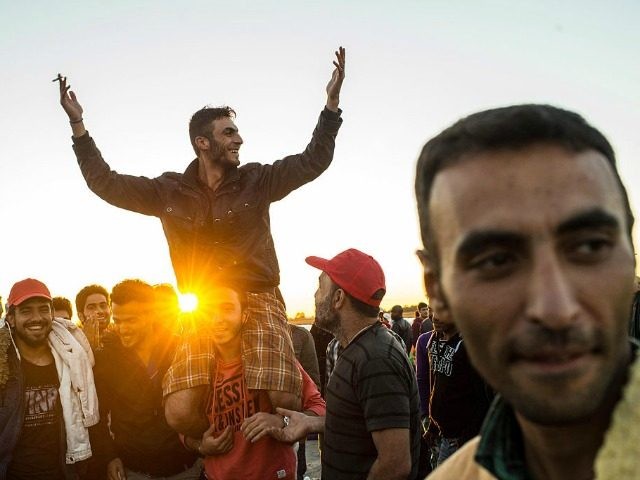The wave of newcomers who entered Austria during the migrant crisis will cause social benefits spending to soar by 35 per cent, a report has revealed.
The latest research shows that the majority of people receiving welfare in Austria never progress to permanent jobs. With particularly bad employment prospects for migrants, local authorities say the system should be reformed after last year’s influx.
The study by the Institute of Economic Research found that two thirds of people on welfare had depended on it for more than 13 months. Forty-five per cent of the welfare recipients who made the jump into work ended up back on benefits just two to three months later.
Commissioned by the city of Vienna, the report discovered that just nine per cent of the group made it into sustainable employment. As a result of receiving 90,000 asylum applications last year Austria, with a population of just eight and a half million, is set to increase social welfare spending by 35 per cent from its 2015 figure.
The research also noted that the prospects of employment for migrants are “particularly unfavourable”. Responding to the study Sonja Wehsely, the Vienna councillor for Health and Social Affairs, suggested reforms be made to the welfare system.
She said: “One can ask the question of what integration services must be adopted in order to receive the full guaranteed income. For the special situation with the [guaranteed income] of the refugees, new answers must be found.”
Krone recently reported a whistleblower’s account of how Austria’s welfare system is abused by migrants. Telling the paper he wants to “show how carelessly taxpayers’ money is handled”, the anonymous state employee revealed authorities rarely check whether benefits claimants have as many children as they say.
Outlining the large amounts of money being doled out, he pointed to how two unemployed migrants who claim to have 11 children are receiving €5,200 a month from the guaranteed income system.
Tensions in Austria over mass migration have run high since Chancellor Angela Merkel of neighbouring Germany last year invited millions of migrants to Europe.
In May, victory was snatched from populist, anti-mass migration candidate Norbert Hofer by just 0.6 per cent of the vote in the second round of Austria’s presidential election. The result was annulled, owing to “serious” postal vote fraud and so a rerun is to take place later this year.

COMMENTS
Please let us know if you're having issues with commenting.